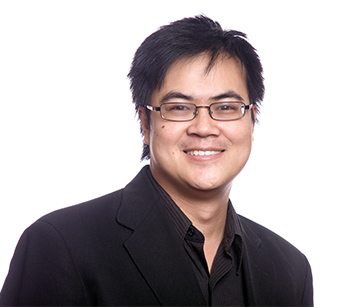-
About
Admitted Student Days
• Saturday, March 28
• Sunday, March 29
• Saturday, April 11Accepted Students: Be sure to register for one of our Admitted Student Days and explore all that Marist has to offer.
About
-
Academics
Admitted Student Days
• Saturday, March 28
• Sunday, March 29
• Saturday, April 11Accepted Students: Be sure to register for one of our Admitted Student Days and explore all that Marist has to offer.
Academics
-
Admission & Financial Aid
Admitted Student Days
• Saturday, March 28
• Sunday, March 29
• Saturday, April 11Accepted Students: Be sure to register for one of our Admitted Student Days and explore all that Marist has to offer.
Admission & Financial Aid
-
Student Life
Admitted Student Days
• Saturday, March 28
• Sunday, March 29
• Saturday, April 11Accepted Students: Be sure to register for one of our Admitted Student Days and explore all that Marist has to offer.
Student Life
- Athletics
Brian Loh
Senior Lecturer, Religious Studies
Bio
Brian Loh is a specialist in early Chinese religious philosophy. At Marist University, he teaches courses on Asian religion and religion’s treatment and use of the body. His teaching emphasizes close textual reading, religious experience, and the areas in which religion, philosophy, and cognitive psychology intersect fruitfully. His scholarship specializes in the religious and social tenants of classical Confucianism with a particular interest in early Chinese ritual theory and the Confucian understanding of transmitted group identity.His current project (as of Fall 2018) is a study of the treatment of strangers and the formation of philosophical lineages in early China. This work on strangers, bonding, and community in China supports his overarching desire to find non-propositional ways to create solidarity between those who are socially or culturally Other.
Education
BA, History, Northwestern University
PhD, Religious Studies, Boston University
Research Interests
Classical Confucianism, ritual theory, comparative religious thought, virtue and role ethics, group formation, physicality and social bonding, cognitive psychology
Selected Presentations
“Yielding Joy: Charismatic Authority in Classical Confucianism,” presented at the 2016 American Academy of Religion annual meeting in the panel, “The Master Was Humble: Confucian Authority and Its Complexities”
“Confucian Role and Ritual as Agency” presented at 2013 American Academy of Religion annual meeting in the panel “Is What You Do Who You Are? Roles and Agency in Confucianism”

